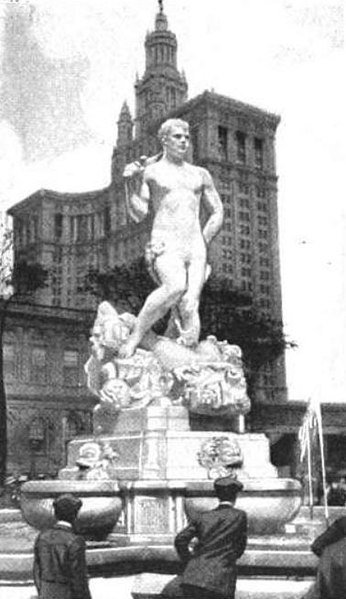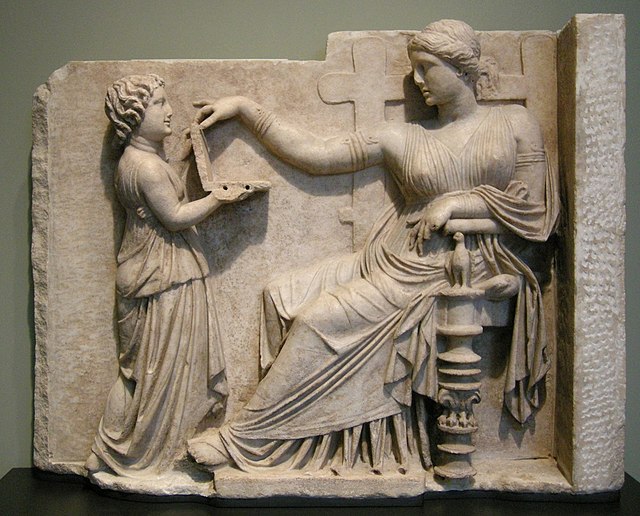Civic virtue is the cultivation of habits important for the success of a society. Closely linked to the concept of citizenship, civic virtue is often conceived as the dedication of citizens to the common welfare of each other even at the cost of their individual interests. The identification of the character traits that constitute civic virtue has been a major concern of political philosophy. The term civility refers to behavior between persons and groups that conforms to a social mode, as itself being a foundation of society and law.
Jacques-Louis David's 1786 painting The Oath of the Horatii, illustrating a dramatic moment from Livy's history of Rome, embodies 18th-century ideas about civic virtue.
Civic Virtue, 1919
The cover of an Eclectic First Reader book.
Citizenship is a membership and allegiance to a sovereign state.
Geoffrey Hosking suggests that fear of being enslaved was a central motivating force for the development of the Greek sense of citizenship. Sculpture: a Greek woman being served by a slave-child.
Portrait of Dred Scott, the plaintiff in the infamous Dred Scott v. Sandford case at the Supreme Court of the United States, commissioned by a "group of Negro citizens" and presented to the Missouri Historical Society, St. Louis, in 1888
Citizenship ceremony on beach near Cooktown, Queensland. 2012
Diagram of relationship between; Citizens, Politicians + Laws







